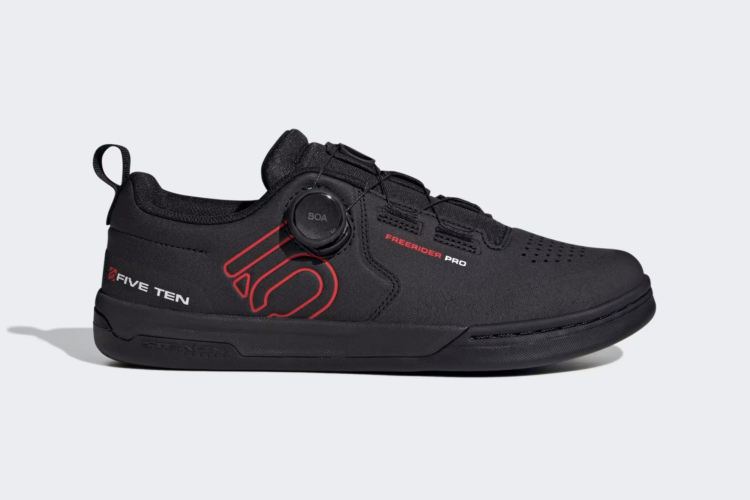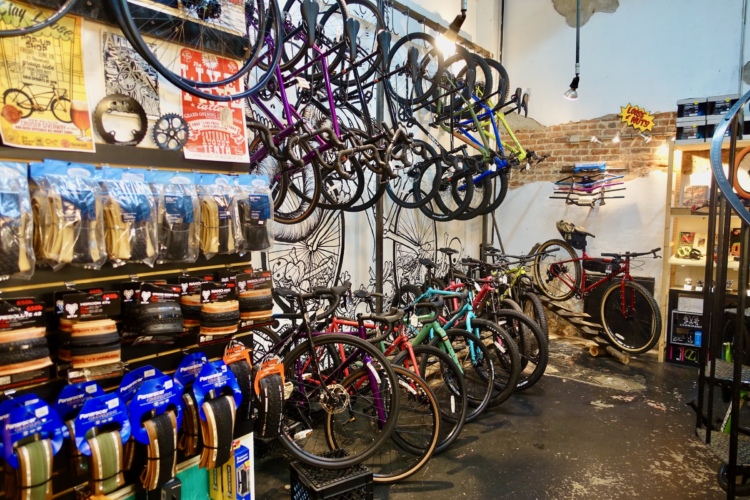Today Niner announced a bran- new mountain bike, the RKT 9 RDO, a short travel, full suspension race bike that’s sure to dominate 2016 race podiums around the world. I got a chance to ride the RKT back in June, and I’m really stoked to finally share what I learned about this bike.
The Bike
The RKT 9 RDO features a carbon frame with a CVA linkage, offering 90mm of rear suspension travel. The frame weighs about 4.5 pounds with the shock thanks to Niner’s RDO Carbon Compaction tech, which results in a strong yet lightweight frame. Niner also points out that the new RKT offers the lowest standover height of any of their bikes and short, 439mm chainstays for maximum responsiveness and maneuverability. The frame is set up for internal cable routing for a clean, aerodynamic look. Oh, and the medium and large frames even have TWO water bottle mounts, a rarity these days, but something racers should appreciate.
With a 71° head tube angle, it’s clear the RKT was built for maximum pedaling and climbing efficiency. And yet, the RKT gives a nod to modern trends in mountain biking with the ability to run 2.4″ tires (most builds actually come stock with a 2.35″ Maxxis Ikon up front) and Boost 148 spacing in the rear. Just a few years ago a thoroughbred XC steed like this would have been spec’d with 2.1″ or narrower tires, but as all types of riders seem to be discovering, wider is better–and faster.
Niner specs the RKT with a 100mm fork up front to give the bike a bit more control when running fast and rough, while still maintaining an efficient climbing platform in the rear. In addition, Niner’s patented CVA linkage “allows for pedal forces to operate independently of rear wheel travel.”
Over the past few years the industry has seen a number of cross-country bikes (XC) evolving into trail bikes with slightly more travel and slacker head tube angles. Of course there is a tradeoff, which means trail bikes don’t climb as well as XC bikes. Niner has experienced this evolution within their own lineup, as the Jet 9 spec has been trending toward the more aggressive end of the XC spectrum. During his testing, our own Aaron Chamberlain found the Jet 9 to be a much more aggressive and capable bike after upgrading the 100mm fork to 120mm. But an aggressive XC/trail bike isn’t for everyone, particularly serious XC racers.
Which leads us to the RKT. Niner is making a statement with the RKT that the 29er is still the best platform for building a fast, lightweight, and racy mountain bike.
On the Trail
As I mentioned in the intro, I got a chance to ride the RKT back in June on the Blue Sky trail outside of Fort Collins, CO. The bike I rode lines up roughly with the 4-star X01 Fox build Niner is currently offering for $6,700 MSRP. My test bike felt super lightweight and plasticky, almost like a toy. With the technology to make a mountain bike this lightweight, it’s certainly a great time to be a mountain biker!
The Blue Sky trail isn’t terribly steep or technical, but it’s also not smooth, either: think small bumps, ripples, and short techy rock jumbles. The RKT 9 RDO felt stiff and ultra-responsive, tracking every bit of the trail with precision. This is what riders expect from a race bike, though it’s not necessarily as comfortable as, say, a bike with a more plush suspension platform. If you’ve ridden a Specialized XC or even trail bike, you know the feeling.
By staying glued to the trail, the RKT chews up climbs like a rock crusher. I’m no suspension expert so I can’t speak to the tech behind the CVA, but I can definitely say it makes the bike feel super rigid, even through deep pedal strokes. Combining the stiff suspension platform with the light weight of the RKT makes this bike climb better than almost every full suspension bike I’ve tested.
Die hard XC riders might not realize that suspension doesn’t exist just for downhills. If suspension is set up correctly, it won’t just get out of the way for the climbs–it will actually assist in them. While pedal bob is an efficiency zapper, having an active rear wheel is beneficial for traction, particularly on technical climbs. Here the RKT really shines over a traditional hardtail XC race bike, and I found myself maintaining excellent traction even through punchy, bumpy climbs.
Of course XC riders eventually have to come down (unless they’re truly masochists and do stuff like this) and here, the RKT keeps riders moving along at maximum speed. Again, if you’re just out for a joyride, you’re not using the RKT correctly. But if you’re riding to win or even just to set some new KOMs and PRs, the RKT is whip-fast. Descending back down the Blue Sky Trail we approached max speed, and the RKT kept its composure and control (thanks, in part, to the extra 10mm of travel the fork offers over the rear suspension) while skittering over everything in its path. In fact, the only thing that slowed me down was the handlebar-height grass obscuring the trail ahead.
Pricing for the RKT 9 RDO will range from $4,500 for the 2-star, GX-1 build all the way up to $9,500 for the 5-star, XTR 1×11 / RS-1 build. All builds are based around a carbon frame, as there is no alloy option for the RKT. I really dig the graphics and green color on the RKT I tested, though there is also a red version for those who prefer a racier color.
The Niner RKT started shipping to dealers this week so if you’re lucky, you might even be able to see one in person at your LBS today. Niner will also be at Outerbike this weekend with RKT bikes available for demo so if you’re at the event, I highly recommend you throw your leg over one of these brand-new bikes!


























0 Comments